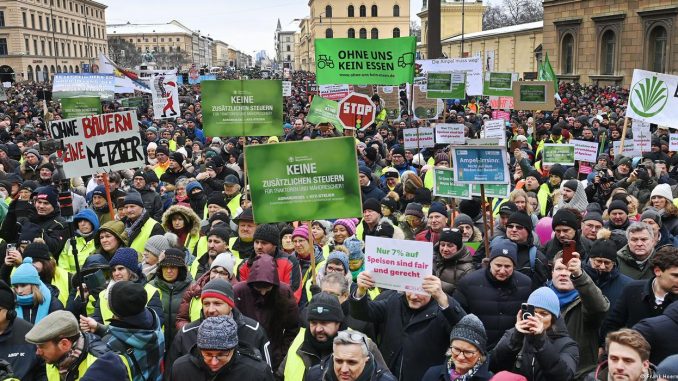The former German chancellor Angela Merkel had a reputation as being a steady hand at the wheel. In her 16 years in office, she was famous for sitting things out rather than taking action. Her pledge to voters was that their lives would continue in peace and affluence and that they had nothing to worry about.
That has turned out to be a fallacy, but past expectations live on.
When it came to power in December 2021, the current center-left government of Social Democrats (SPD), Greens and the neoliberal Free Democrats (FDP) promised progress without the need for any belt-tightening. Nobody was prepared for the war in Ukraine and its knock-on effects.
Then the government planned a €60 billion ($65 billion) injection for a pain-free transformation to a carbon-neutral economy and society. The money had been left over from an emergency government loan approved during the COVID-19 pandemic, but unexpectedly not spent. Yet Germany’s constitutional court declared this budgetary maneuver as unconstitutional in November 2023.
The government was faced with the task of plugging a hole in the budget while the economy is teetering on the verge of recession, and price hikes for energy and food have had an impact on the living standards of a large part of society.
Under these circumstances, tax hikes and subsidy cuts are regarded by many as a complete imposition. While some people are tired and resigned, others are furious at the government.
Farmers protests: Letting out pent-up anger
Farmers who are facing some subsidy cuts are particularly angry. They have been blocking highways and intersections, driving into cities in their tractors and bringing traffic to a standstill.
In northwestern Germany, farmers — allegedly supported by far-right extremists — tried to storm a ferry on which Economy Minister and Vice-Chancellor Robert Habeck was returning from a vacation.
